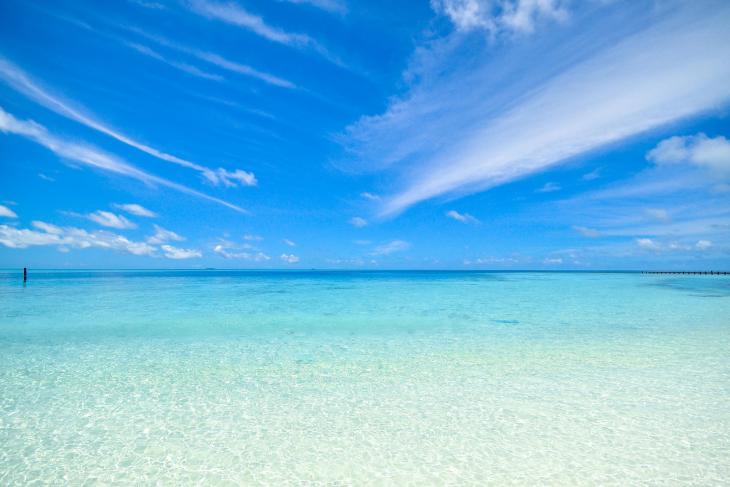
By Publisher Ray Carmen :
Oceans are much more than large bodies of water that span more than 70% of the Earth's surface; they play an important role in many countries' cultural, economic, and recreational lives. In the tourism industry, seas act as both a magnet and a lifeline, attracting millions of visitors each year to coastal regions across the world. From beach vacations and marine adventures to cruise tourism and island retreats, the ocean is a vital component of the worldwide travel business.
1. Breathtaking scenery and natural attractions.
The oceans offer some of the most stunningly spectacular scenery on the planet. Pristine beaches, spectacular coastlines, coral reefs, and crystal-clear waters are popular destinations for vacationers seeking leisure and inspiration. The Maldives, Hawaii, the French Riviera, and Australia's Great Barrier Reef are classic instances of how the ocean's beauty drives tourism industries.
2. Adventure and Marine Activities.
Water-based recreational activities are an essential component of ocean tourism. Scuba diving, snorkeling, surfing, sailing, whale watching, and deep-sea fishing are just a handful of the many activities that rely solely on ocean settings. These activities not only provide cash to local people, but they also encourage physical fitness, environmental awareness, and cross-cultural interactions.
3. Cruise Tourism
Cruise tourism relies heavily on the ocean. Modern cruise ships provide floating resorts that travel across seas to many destinations, combining luxury and accessibility. According to the Sail Lines International Association (CLIA), millions of people sail each year, producing billions of dollars in revenue and benefiting port cities and service companies along the route.
4. Economic Benefits to Coastal Communities
Millions of people rely on the oceans for a living through tourism. The increase in visitors benefits coastal communities' hotels, restaurants, transportation services, local markets, and tour operators. Tourism is one of the few viable economic sectors in many small island developing states (SIDS), and it is strongly dependent on the health and beauty of the surrounding waters.
5. Environmental and Cultural Education
The ocean offers opportunities for education and eco-tourism. Visiting marine sanctuaries, participating in conservation projects, or exploring coastal heritage sites allows tourists to gain a better understanding of ocean ecosystems and local cultures. This understanding can result in more responsible travel and increased support for environmental preservation efforts.
6. Sustainability Challenges.
Despite their importance, the seas confront various problems, including pollution, overfishing, coral bleaching, and increasing sea levels caused by climate change, to name a few. Unsustainable tourism activities may worsen these difficulties. Therefore, it is critical that ocean tourism be developed and managed in ways that preserve marine ecosystems for future generations. Initiatives such as marine protected areas, eco-certification for resorts, and community-based tourism provide examples of sustainable participation.
Conclusion
The ocean is more than simply a backdrop for holiday photos; it is a live, breathing force behind global tourism, economic progress, and cultural interaction. As tourism grows, maintaining maritime habitats becomes not only an environmental issue, but also an economic imperative. Tourism must survive alongside our oceans.
Oceans are much more than large bodies of water that span more than 70% of the Earth's surface; they play an important role in many countries' cultural, economic, and recreational lives. In the tourism industry, seas act as both a magnet and a lifeline, attracting millions of visitors each year to coastal regions across the world. From beach vacations and marine adventures to cruise tourism and island retreats, the ocean is a vital component of the worldwide travel business.
1. Breathtaking scenery and natural attractions.
The oceans offer some of the most stunningly spectacular scenery on the planet. Pristine beaches, spectacular coastlines, coral reefs, and crystal-clear waters are popular destinations for vacationers seeking leisure and inspiration. The Maldives, Hawaii, the French Riviera, and Australia's Great Barrier Reef are classic instances of how the ocean's beauty drives tourism industries.
2. Adventure and Marine Activities.
Water-based recreational activities are an essential component of ocean tourism. Scuba diving, snorkeling, surfing, sailing, whale watching, and deep-sea fishing are just a handful of the many activities that rely solely on ocean settings. These activities not only provide cash to local people, but they also encourage physical fitness, environmental awareness, and cross-cultural interactions.
3. Cruise Tourism
Cruise tourism relies heavily on the ocean. Modern cruise ships provide floating resorts that travel across seas to many destinations, combining luxury and accessibility. According to the Sail Lines International Association (CLIA), millions of people sail each year, producing billions of dollars in revenue and benefiting port cities and service companies along the route.
4. Economic Benefits to Coastal Communities
Millions of people rely on the oceans for a living through tourism. The increase in visitors benefits coastal communities' hotels, restaurants, transportation services, local markets, and tour operators. Tourism is one of the few viable economic sectors in many small island developing states (SIDS), and it is strongly dependent on the health and beauty of the surrounding waters.
5. Environmental and Cultural Education
The ocean offers opportunities for education and eco-tourism. Visiting marine sanctuaries, participating in conservation projects, or exploring coastal heritage sites allows tourists to gain a better understanding of ocean ecosystems and local cultures. This understanding can result in more responsible travel and increased support for environmental preservation efforts.
6. Sustainability Challenges.
Despite their importance, the seas confront various problems, including pollution, overfishing, coral bleaching, and increasing sea levels caused by climate change, to name a few. Unsustainable tourism activities may worsen these difficulties. Therefore, it is critical that ocean tourism be developed and managed in ways that preserve marine ecosystems for future generations. Initiatives such as marine protected areas, eco-certification for resorts, and community-based tourism provide examples of sustainable participation.
Conclusion
The ocean is more than simply a backdrop for holiday photos; it is a live, breathing force behind global tourism, economic progress, and cultural interaction. As tourism grows, maintaining maritime habitats becomes not only an environmental issue, but also an economic imperative. Tourism must survive alongside our oceans.




